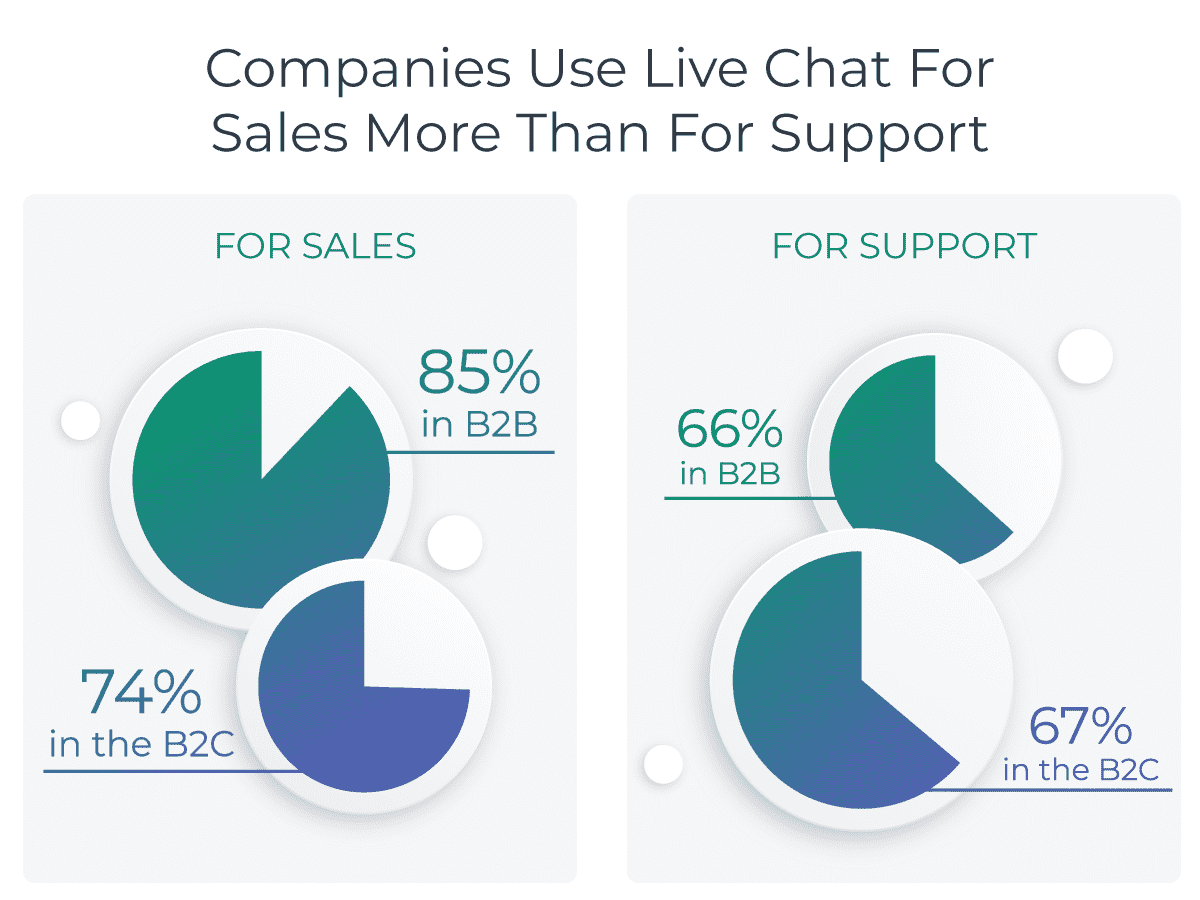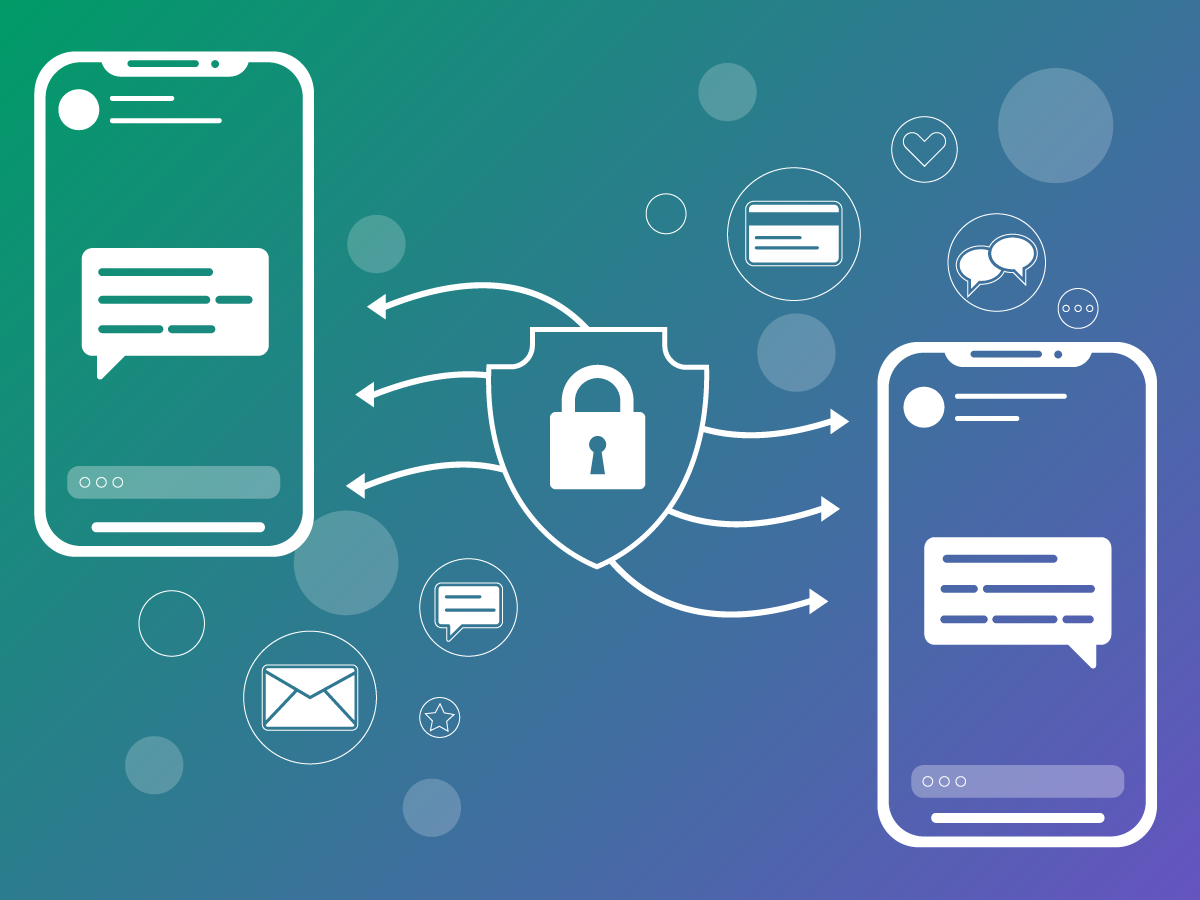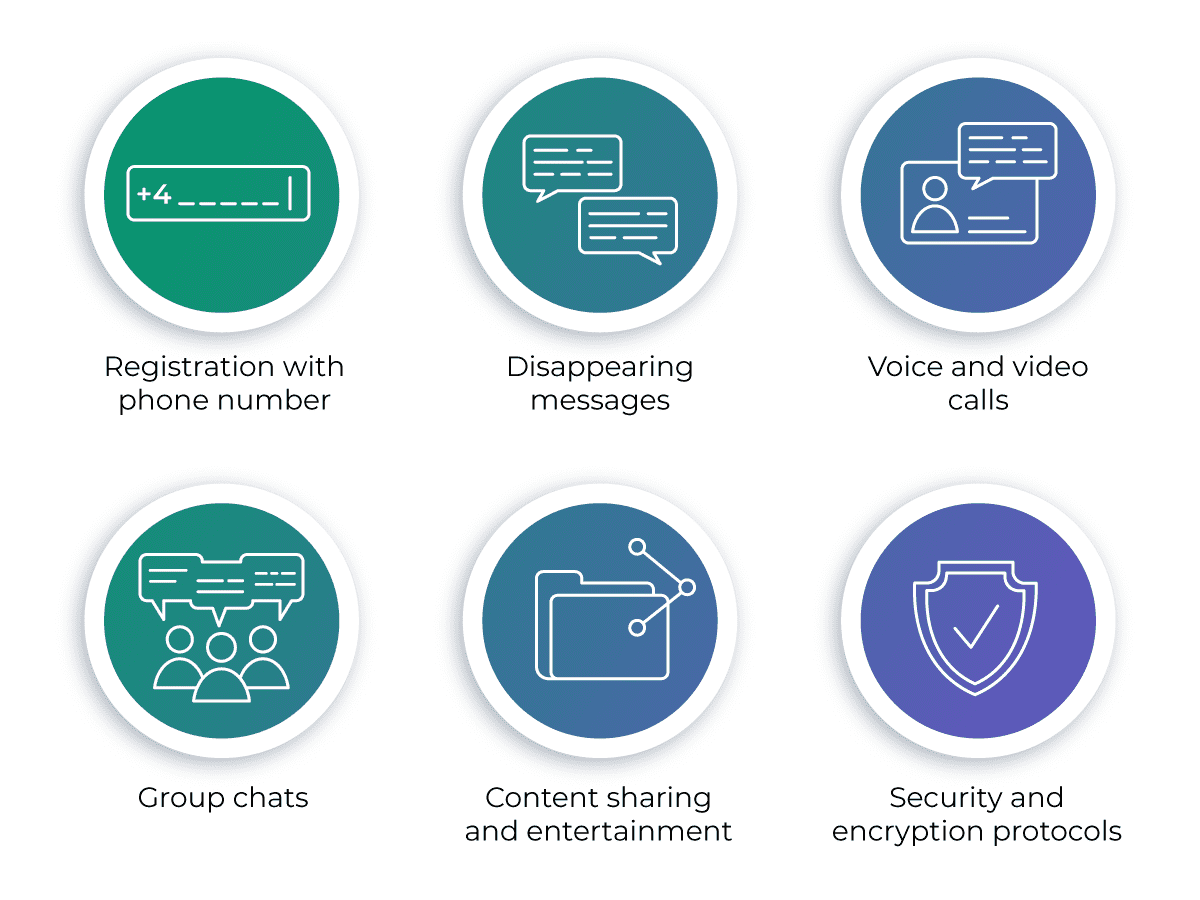Mobile phones give us the ability to talk to anyone, anywhere. This technology is also a two-sided blade because there is an assumption that everyone is available twenty-four hours a day, seven days a week. For businesses that want to keep a competitive advantage, this means being accessible in ways they may have not considered before. Phone calls, while still an important tool for outreach, are considered stone-age technology by younger generations; email is passive, easy to ignore, and quickly becoming outdated.
Fortunately, there is another choice that both uses technology and retains the human touch that customers crave. Live chat allows for communication over web and mobile channels, giving companies the ability to offer the service that customers demand. What’s more, customers are responding positively, with 38% saying that they are more likely to buy from a business that offers live chat support.1
Businesses can use Signal Protocol in their chat development to ensure that their client’s information is properly encrypted, thus protecting it from prying third-party eyes.

What is live chat?
Live chat is essentially text messaging, but from an enterprise perspective. It can be sent from a website or over a mobile carrier; in fact, live chat via customers’ phones is becoming increasingly popular. Ninety-four percent of businesses received chat queries from mobile devices in 2017.2 Customers continue to expand their use of mobile technology; they’re not just talking to their friends or browsing social media. They’re shopping and talking to businesses as well, and businesses are starting to talk back.
While this sort of chat can help a human agent respond to various inquiries at once, artificial intelligence is upping the ante in the form of chat bots. IBM predicts that by next year, 80% of all customer service interactions won’t need human interactions. Chat bots can take the brunt of answering repetitive but frequently asked questions, retrieving order information, and other simple, automatable tasks. Together, machines and human beings can do great things. With the help of a human agent, 88% of customer inquiries were resolved.3
B2B and B2C companies use live chat to further their sales reach; within two years of implementing the new chat feature, businesses saw a 24% increase in sales and a 49% increase in conversions.4 Businesses said felt they had a better understanding of their customers after interacting with them regularly via chat; a better understanding of customers can lead to not only better sales, but better business practices overall.

Customers want fast service; that much is clear. But they also want to feel heard; they want fast, quality service where they make a personal connection. Good customer service can go a long way in making the kind of impression that inspires loyalty and return shoppers. Live chat can aid this kind of support, and also assist with lead generation that create further sales.
Live chat can also offer a record of information that can be analyzed for marketing purposes, used for training, and create an overall blueprint for improving your business strategy. With all of this information, your next question might be: how do I make sure all of it is safe?
Businesses should protect their customer’s information with end-to-end encryption (E2EE); they can create a secure chat with Signal Protocol.
Encrypted chat development with Signal Protocol
Data breaches are a very real threat to both customers who want to protect their information from identity theft and businesses who wish to be seen as trustworthy. Losing a customer’s information doesn’t just mean a lost sale, but potentially permanent damage to your company’s reputation, which is difficult and expensive to recover.
Live chat can contain personal information that customers are sharing in confidence: information such as credit card information, addresses, and Social Security numbers. Businesses are being trusted to make sure this information doesn’t fall into the wrong hands! And you can protect your customers’ trust by using the cryptographic protocol that is driving much of today’s cybersecurity development: Signal Protocol.
Signal Protocol, which is open source and non-federated, is a cryptographic protocol that is used in encrypted chat development. It provides E2EE for instant messaging, video calls, and voice calls. E2EE means messages are encrypted before being sent and can only be decrypted on the device of the intended recipient. The protocol is most widely recognized for its use in the text messaging app Signal. It is also used in other popular messaging applications such as Whatsapp, Skype, and Facebook Messenger.

The protocol was developed in 2013 by Open Whisper Systems. It uses a combination of cryptographic algorithms and key generation to create a secure channel between senders and intended recipients. Decryption keys are generated upon sending a new message, meaning there is a single use and unique key for each message. E2EE messages cannot be deciphered by third parties, such as a service provider who might read messages going through its server to develop targeted ads.
The Signal messaging app is popular for is transparency, encryption, and the fact that it’s free to anyone who wants to use it in their application. It does not share information with intelligence agencies, doesn’t collect user data, and doesn’t store timestamps or IP addresses. There’s even a feature to have messages disappear after a set amount of time. Because of this, businesses that intend to use E2EE messaging in its communications would be smart to inform their users that information provided to the company is being stored for record-keeping purposes.
Signal Protocol also offers the ability to create unique profiles that contain an image and name.5 This allows recipients to see who is reaching out to them, instead of wondering who that random phone number belongs to. Remember, customers want to know they’re talking to a human being and not a robot. Appearances go a long way in reassuring a recipient that they’re not the victim of a chat bot or robo-text. These profiles are stored on the home device and encrypted in the same fashion that other messages, be they text, voice, or video, are encrypted. A profile is only accessible to authorized users.
Develop your own live chat with Signal Protocol
So now that you know all about Signal Protocol, how do you go about creating a messaging app that includes this kind of encryption? As with any software development, some thought about design and development needs to go into the overall process. Establishing a solid definition phase will make sure you not only know what you want, but how to go about getting it. This establishes an understanding about labor and costs so you don’t break your budget.
You’ll want to think about all the functionality you want your app to offer; are you focused on text messages, or do you want voice and video? Should the application have group chat functionality? How are users registering, and what about content sharing? Do you want them to be able to send images, video, gifs?
Let’s take a look at what the original Signal Protocol messaging app offers. The Signal messaging application offers phone number registration, disappearing messages, video and voice calls, group chats, content sharing, and, of course, security and encryption. The team developing the app is always looking at new features that they can incorporate for their customers.

Pricing and timelines will vary depending on the amount of functionality you want in your minimum viable product. Are you looking to develop a native application, or will cross-platform work? Are you focused on a clean and easy UI, or is speed to market the primary concern?
There isn’t a one-size fits all solution; software and mobile application development takes time, thought, and consideration.
Implementing security in your live chat application might be difficult, but there are companies out there that can cut through the noise to help you understand your options and what will work best for your company and your needs. Having E2EE can help you avoid becoming the next big headline about a data breach. Using live chat in your daily business practices can establish a better relationship with your customers, and grow your company.








